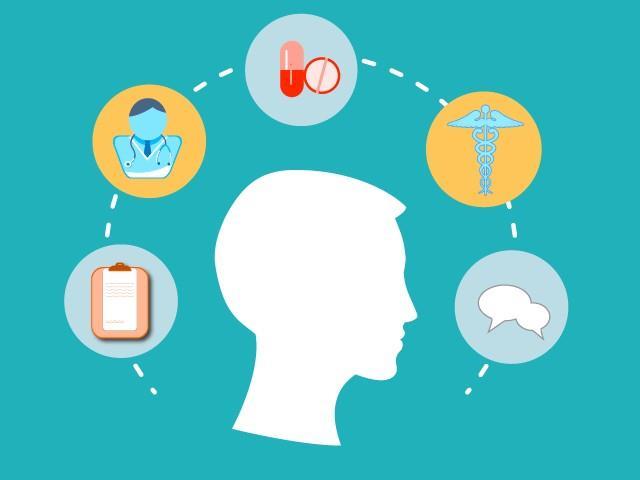Social Media and its Impact on Mental Health NICOLE REDDEN
Social media is affecting the mental health of all of its users in both beneficial and harmful ways. According to the American Psychiatric Association, one in three adults see the use of social media as having a negative impact, while only 5% see it as having a positive impact on mental health.3 Also, about 88% of adults think social media use in younger children and teens is particularly concerning.3 Since mental health is such a broad topic, we are going to break it down specifically into the areas of procrastination, body image and self-esteem issues, addiction, and suicide.
Procrastination
Figure 2. Social Media Addiction - Addiction Center 10
We are all guilty of procrastination at some point in our lives, but is social media the culprit behind it? There have been many studies completed to see if there's a connection between social media and procrastination. A German study of more than 800 early and middle-aged adolescents found that procrastination was linked with increased social media multitasking and uncontrolled social media use.4 It was then discovered that the participants' academic performance decreased in correlation to increasing time spent on social media.4 A 2020 US study showed college-aged students using social media to procrastinate at a higher rate than any other age group, which led to an increase in anxiety and depression.5 In the UK, about 53% of teenagers said they get distracted by social media, which leads to them getting stressed about schoolwork.6
Body Image and Self-esteem Issues
Comparing, over-analyzing, hating one's body, or overall just not feeling good about yourself can be linked back to social media use. Children are creating social media accounts earlier and earlier in life, causing them to develop body image and self-esteem issues at a younger age than ever before. According to a Pakistani study published in 2017, students aged 18-25 who used social media more, specifically Facebook, had lower selfesteem than the groups that used it less.7 One study based in the UK followed 14-15 year old's for three years to study the correlation between their social media use and body image. It was found that 40% of the participants had seen pictures on social media that caused them to compare and worry about their bodies.8
Figure 4. How does social media affect mental health? - Today News Spot 14
Figure 3. Don't depend on social media for happiness | The Daily Illini 13
Addiction Social media plays an increased role in addiction, anywhere from the glorification of drugs and alcohol to the newly evolving social media addiction itself. It is finding ways to grab hold of teenagers in the worst way possible. One study was conducted on college-aged students, and it showed a correlation between alcohol-related content on social media and an increase in underage drinking.9 Most people cannot be without their phones, constantly getting gratification through their accounts on various social media platforms. This is why social media addiction is being reviewed by American Psychiatric Association to be included in the DSM-5 as early as 2022.10
Suicide
Both low self-esteem and addiction lead to increases in suicide, but how does social media play into it? In the U.S., teens spend on average three hours a day on social media, causing an increase in mental health issues ranging from anxiety up to suicidal ideations.11 Suicide is the second-leading cause of death for people ages 10-24, and it has nearly tripled in the 10-14 year range.12 Figure 5. Suicide often not preceded by warnings - Harvard Health Blog 15
Solutions and Opinions
There isn’t a quick fix to this, but there has been some progress such as the body positivity movement and possibly of getting social media addiction into the DSM. Using social media intentionally and setting time limits can be beneficial to your mental health. Social media affects our mental health in ways that we cannot even grasp yet. In that respect, I don’t believe social media is a place for young children. It is hard to put an age on it, though. Parents are giving children phones and iPads at such young ages, so they will keep getting exposed earlier in life. Social media can sometimes be used for good, but it also can be an incredibly toxic environment. As a society, we have become too sensitive, which is why social media is harming our mental health. We are letting someone else define what is standard and acceptable when we should not care at all.
































